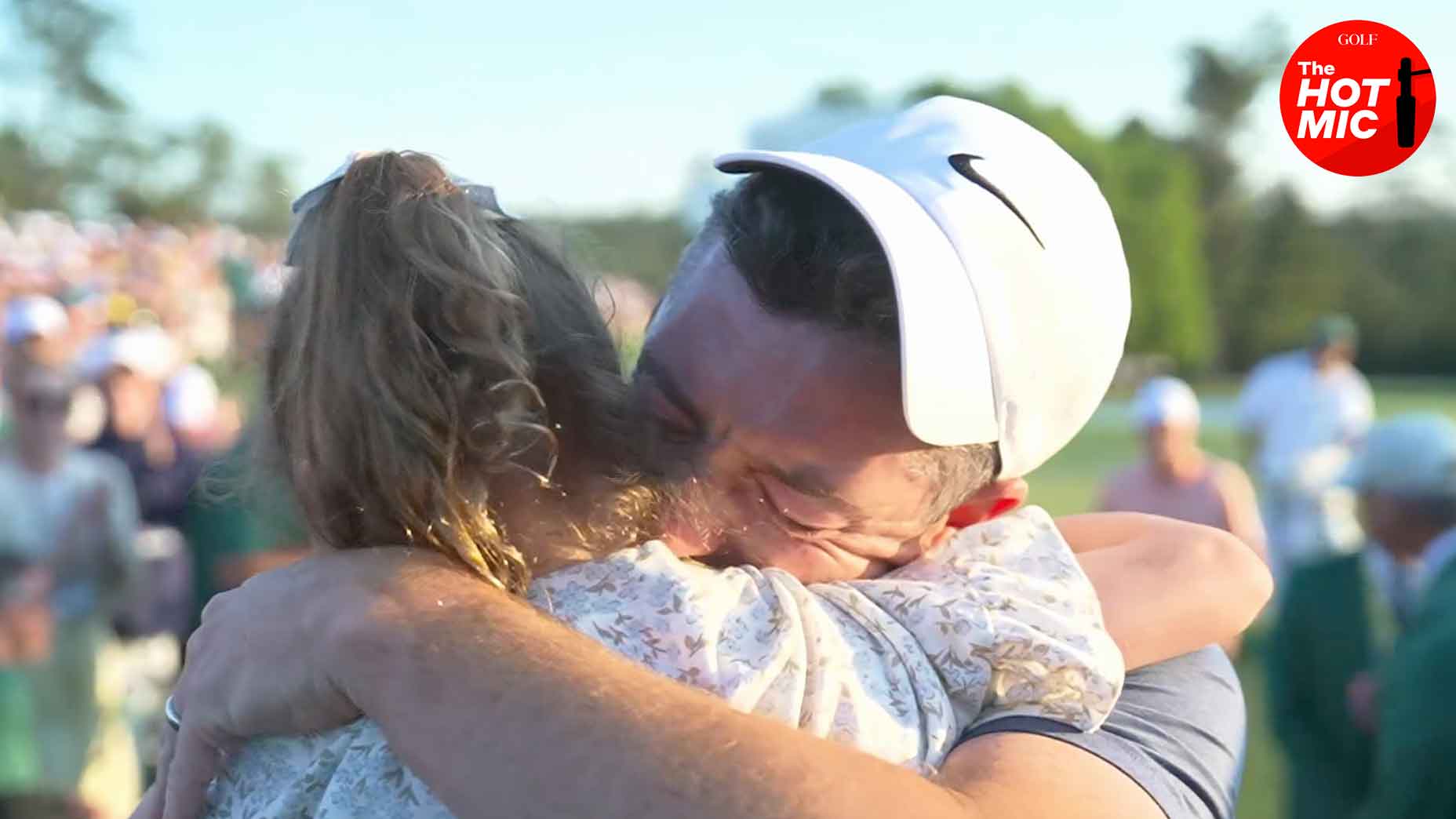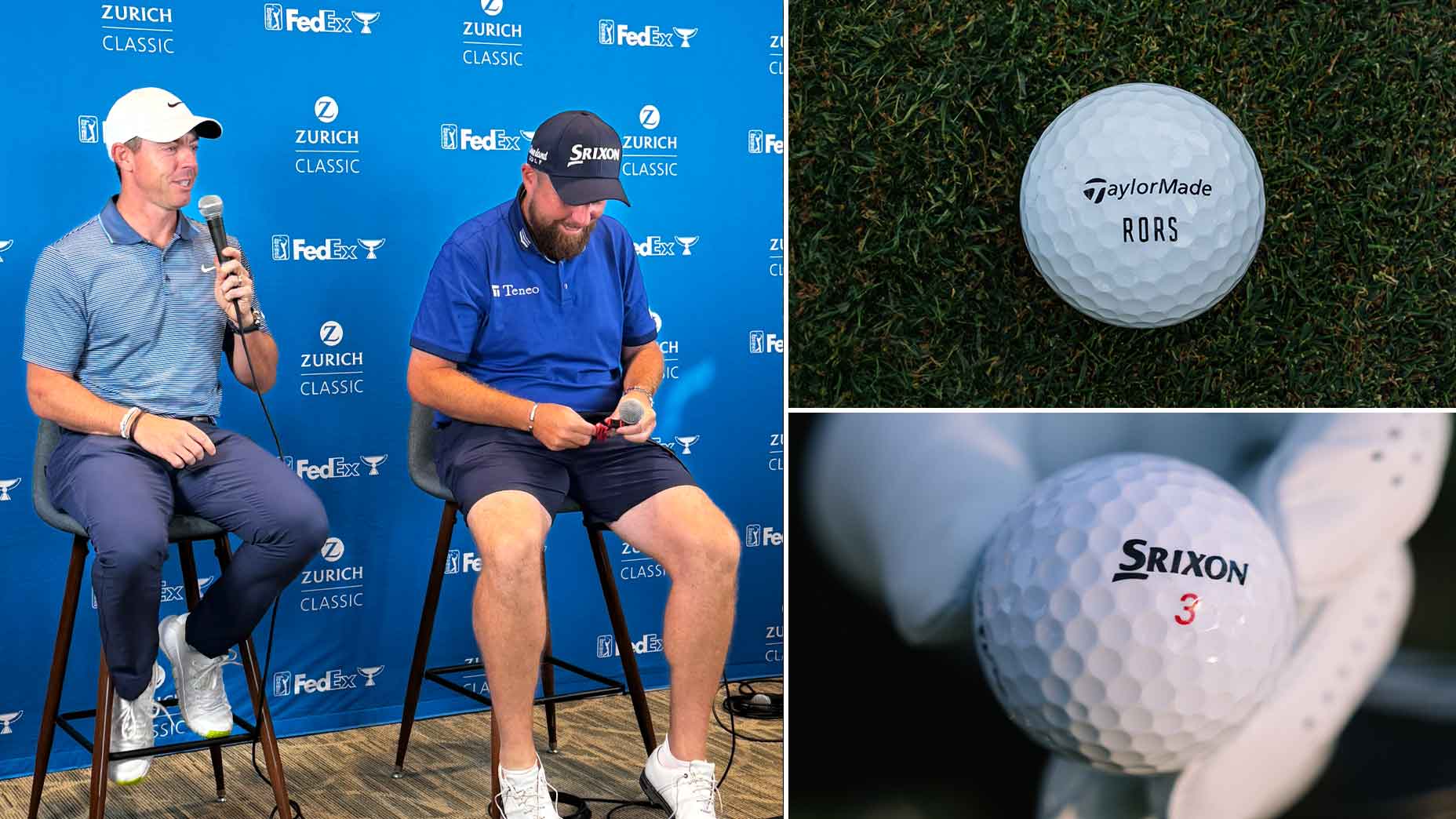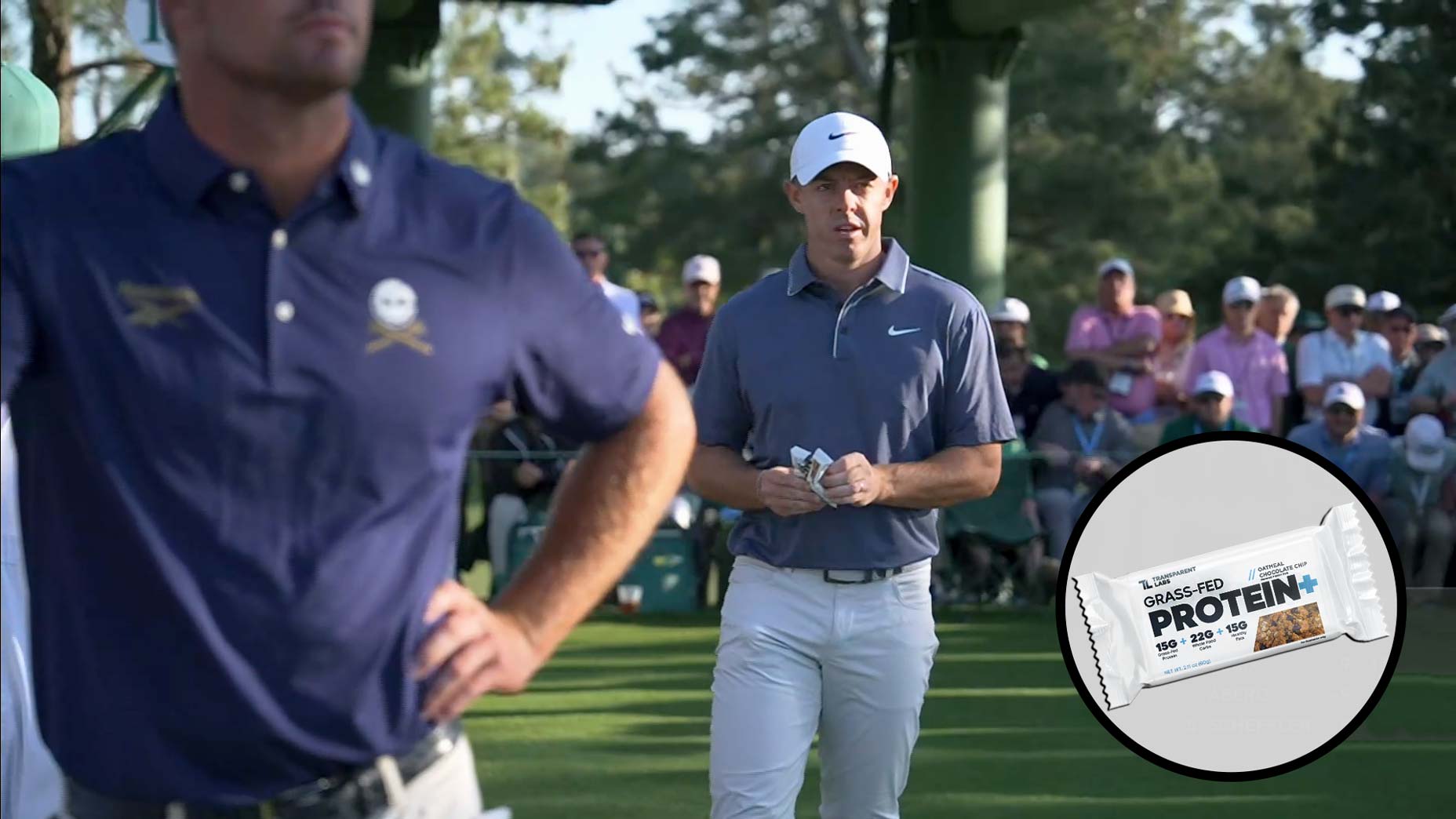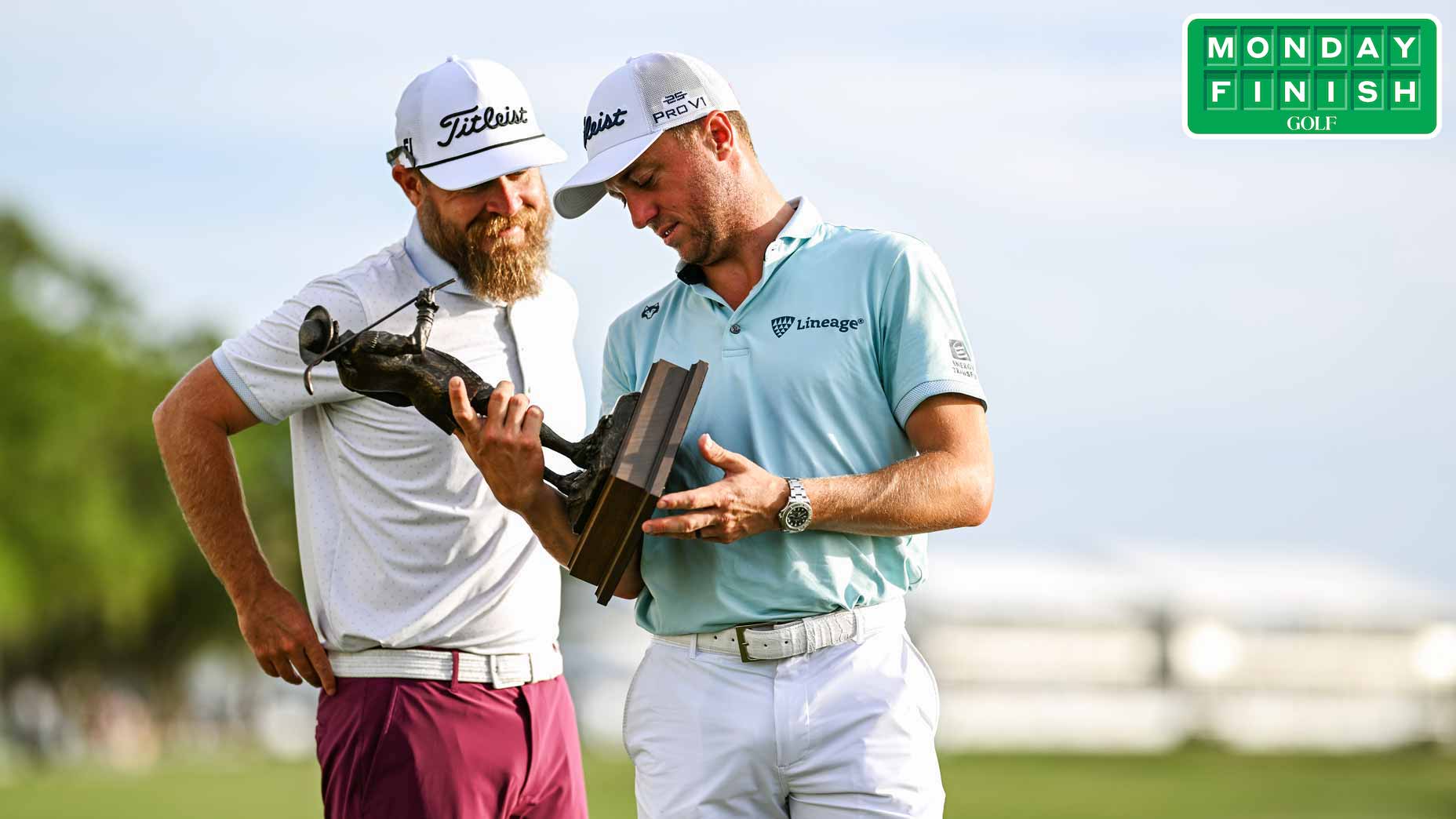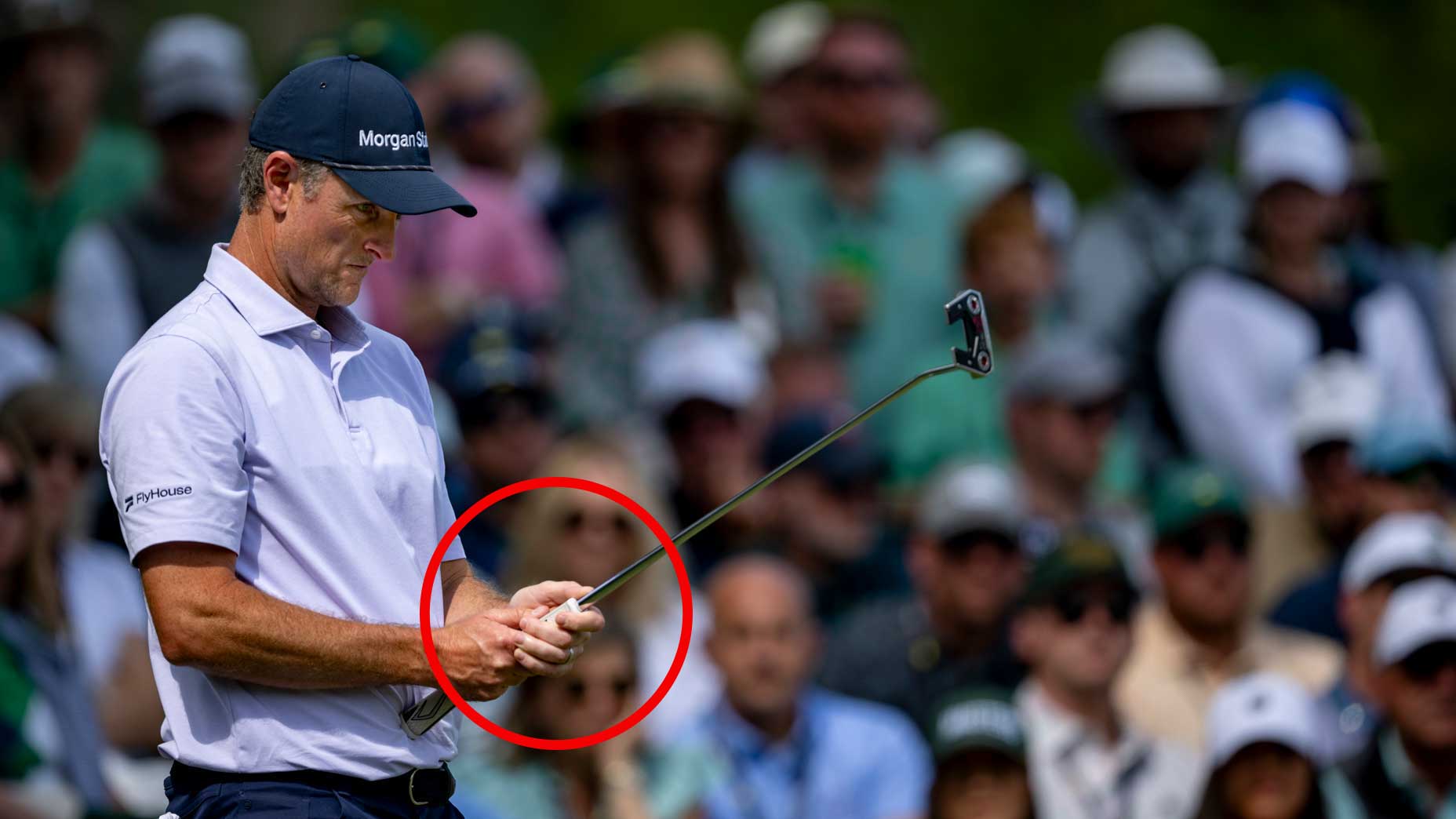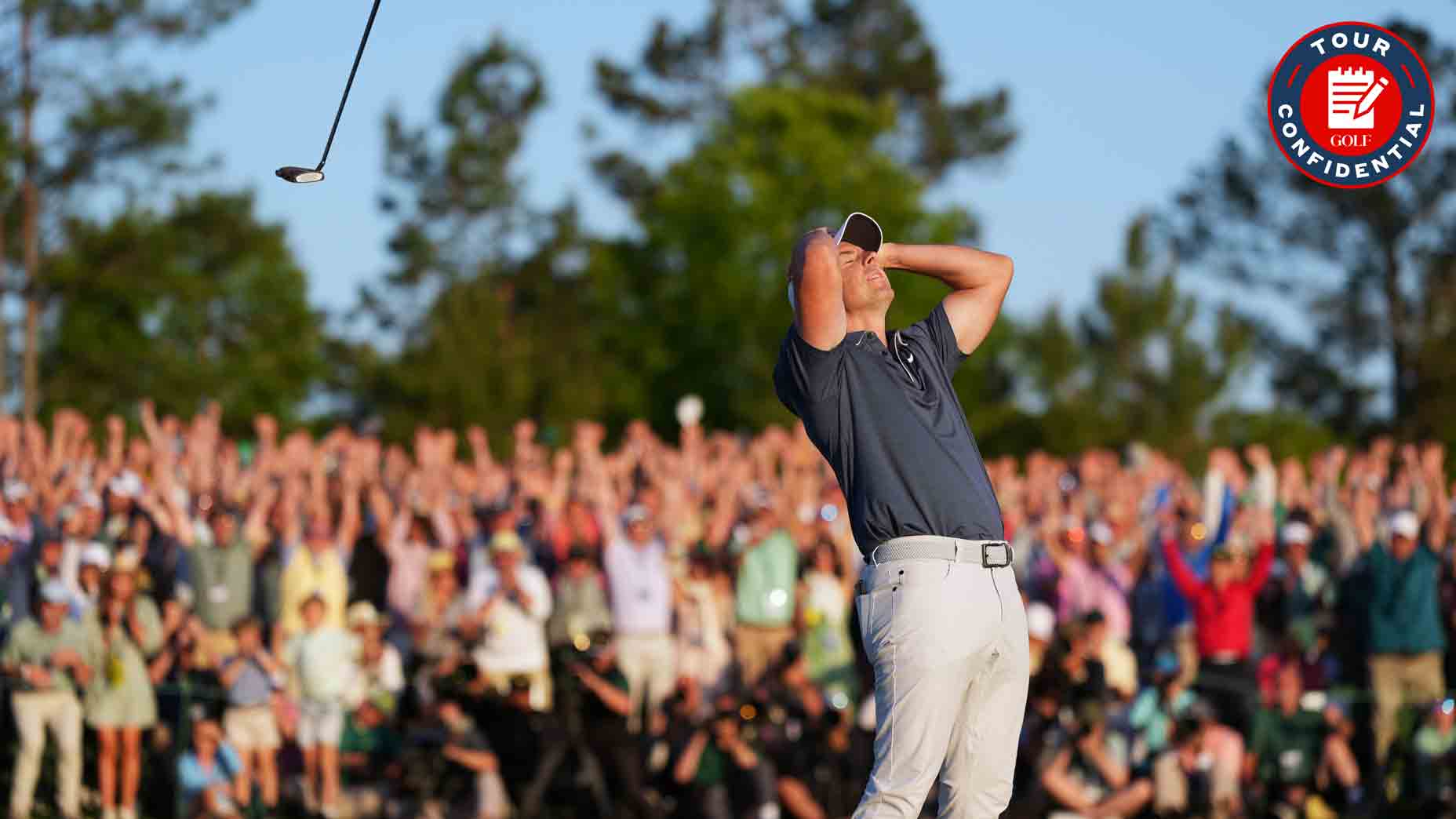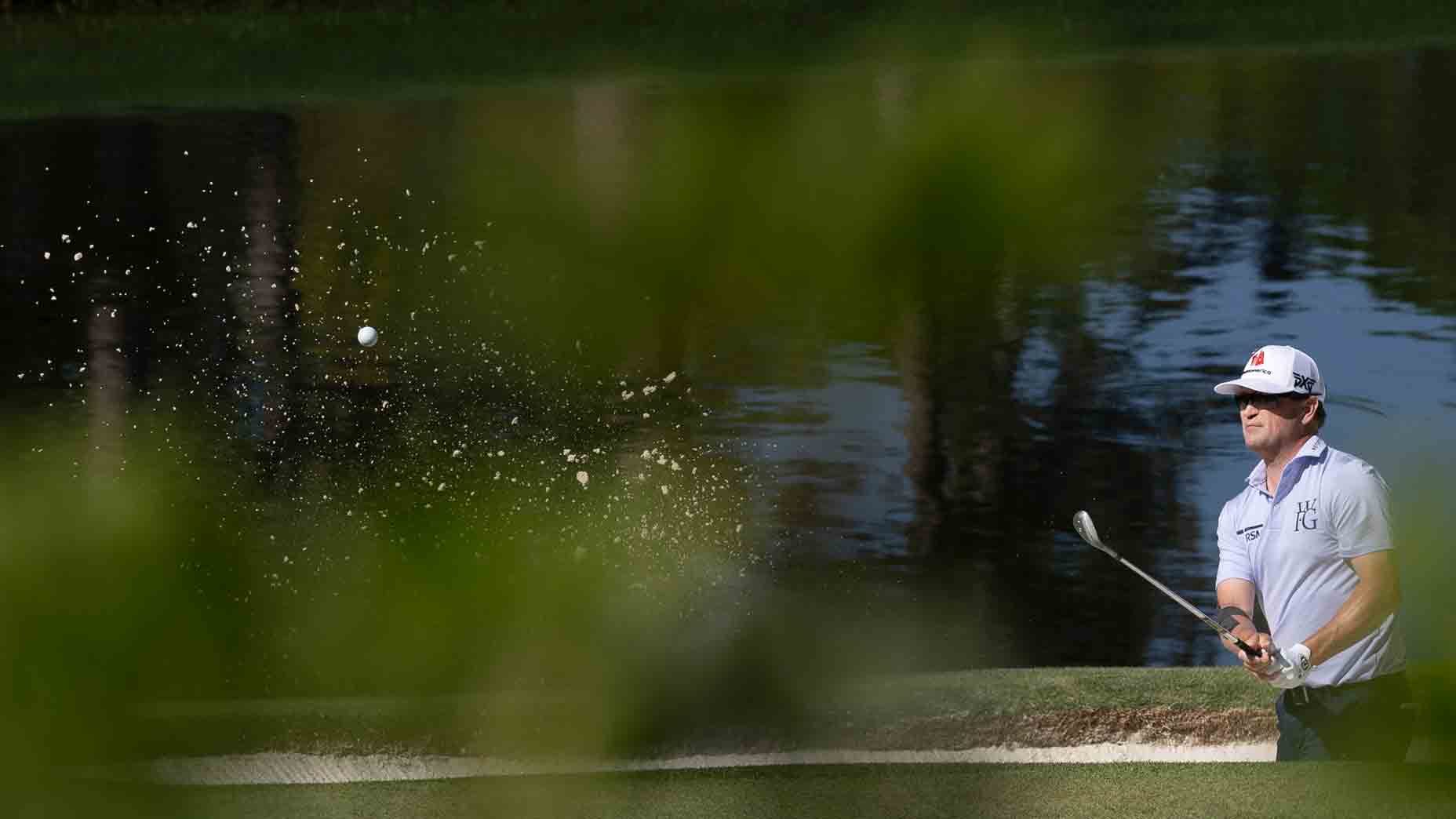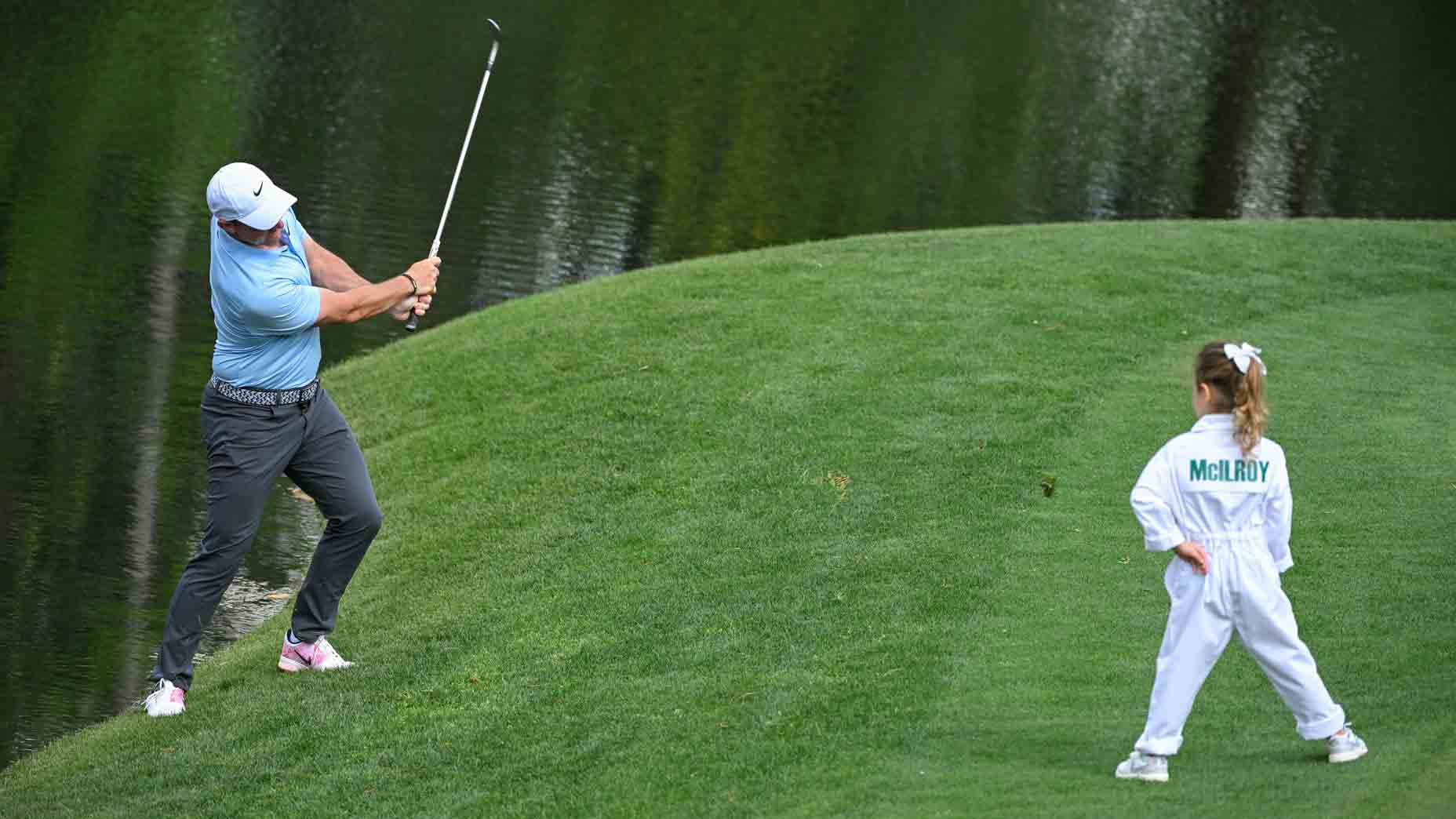Revisiting 15 years of Rory McIlroy Masters gameplans
- Share on Facebook
- Share on Twitter
- Share by Email
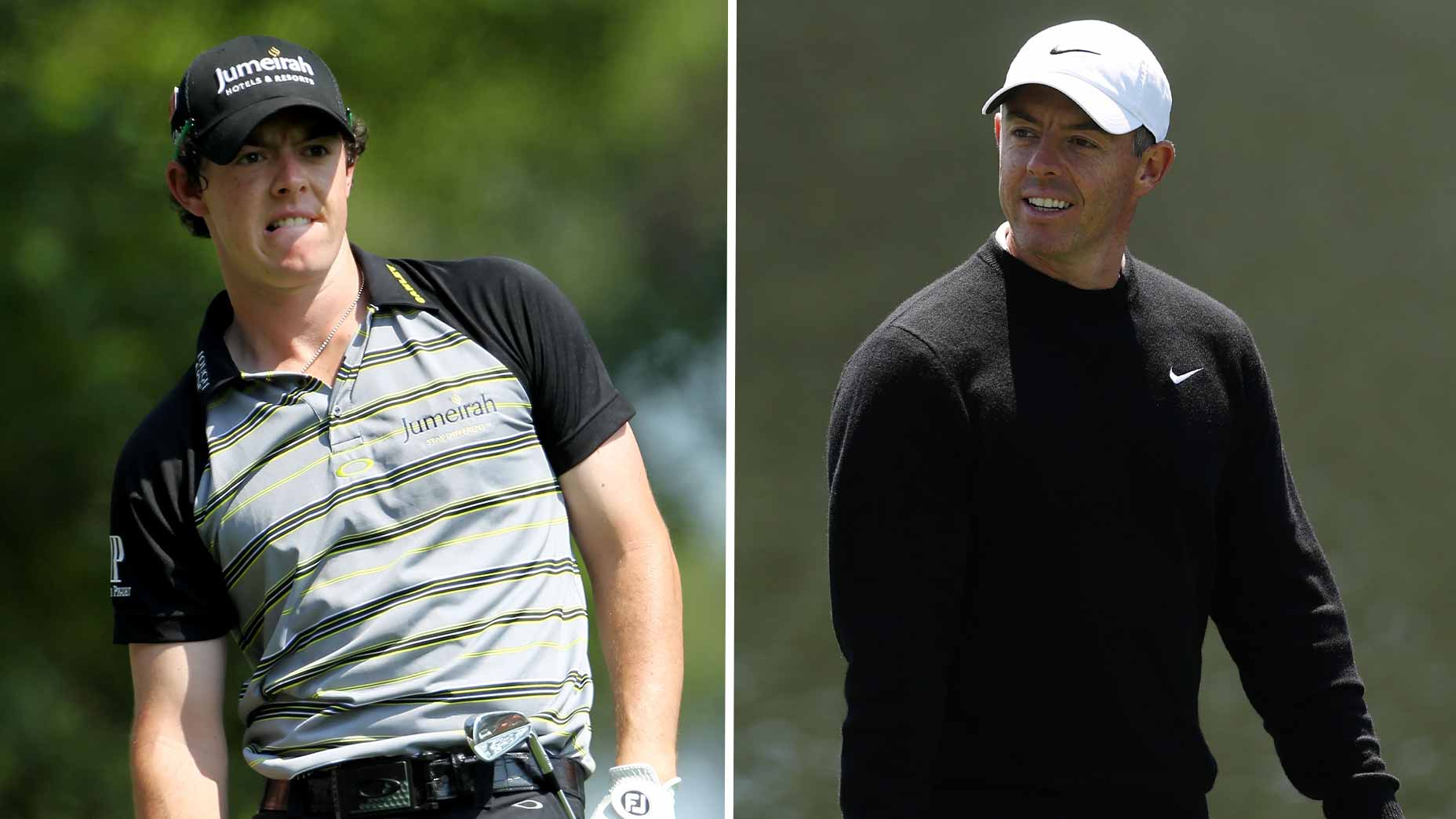
Rory McIlroy's last 15 years of Masters have featured no shortage of innovation.
Getty Images
AUGUSTA, Ga. — Rory McIlroy’s Tuesday morning press conference has become something of a Masters tradition.
As has the next piece of it: McIlroy’s explanation for why this year is different.
Rory’s history at the Masters has been largely heartbreaking, beginning with his ill-fated Sunday collapse in 2011 and continuing — with a few notable exceptions — through to today. McIlroy enters 2025 still one victory at Augusta National away from the career grand slam, and still mostly tortured by golf’s first major.
But his history of early-week optimism has lasted nearly as long. Historically, McIlroy has used this Tuesday press conference as a means of discussing his own gameplan for the week, and historically, no two gameplans have been the same.
As the attention of the golf world shifted to McIlroy after his victory at the Players Championship in March, I found myself wondering about Rory’s gameplan in 2025. On one hand, he’d played some of his best golf ever in the opening months of 2025, winning twice and appearing to lessen the gap on Scottie Scheffler for World No. 1. Perhaps something had clicked. On the other, it seemed like we’d already heard everything from McIlroy over the span of the 180 months since his heartbreak in 2011. He’d tried every approach in the book, from treating Augusta National like a personal temple to treating it like a run-of-the-mill Tour stop.
Were there lessons to glean? And if so, what were they?
I dug through all 15 majors since McIlroy’s main Masters heartbreak to find out the answer.
The year: 2025
What he said: Let’s start at end. McIlroy’s most recent Masters presser appeared to be one of his most confident in recent memory. He entered tournament week playing some of the best golf of his career, and talked about changing his mentality toward his golf to shift away from results-oriented thinking.
“We talk about trying to chase a feeling on the golf course. Like if you’re on the golf course, what way do you want to feel when you’re playing golf?” McIlroy said. “It’s not something I just do here, but I do every week that I compete. If I can chase that feeling and make that the important thing, then hopefully the golf will take care of itself.”
How he did: TBD
The year: 2012
What he said: McIlroy’s 2011 collapse was the talk of tournament week. In his pre-round presser, Rory addressed his growth as a golfer since the year before — and how he’d handle a situation in the lead heading forward.
“It wasn’t the end of the world,” said McIlroy. “I feel like myself, I’m more relaxed. I sort of have a bounce in my step and sort of a heads-up looking around at other people. That day I felt like from watching the tape back, I was always looking at the ground. I was very insular. My shoulders were a bit [hunched], sort of like I didn’t want the outside world to get in instead of embracing the situation and saying: ‘You know, I’ve got a four-shot lead at the Masters. Let’s enjoy this.’”
How he did: McIlroy was in the thick of contention before a 77-76 on the weekend plunged him into a T40 finish.
The year: 2013
What he said: After failing to break par on Sunday in consecutive years, McIlroy tweaked his off-the-tee strategy to aim for the fat parts of the fairway, allowing his superior iron play to shine.
“All the demons are gone,” McIlroy said about his weekend struggles. “They were gone as soon as I got off the 18th green.”
How he did: McIlroy shot 79 on a brutal Saturday to fade from contention, but rallied to shoot three-under 69 on Sunday and card a T25 finish.
The year: 2014
What he said: In his last major start before the Masters, McIlroy won his second major at the PGA Championship at Kiawah. He entered the week with an all-or-nothing mindset.
“Mind, body, equipment, it’s all there,” he said. “There are no excuses if I don’t do well this week. It’s just a matter of managing my expectations, not getting ahead of myself.”
The week at Augusta National was “easier” with two majors in the bag, he said. Now it was a matter of putting it all together.
How he did: McIlroy pieced together his best Masters performance yet, a T8 finish, battling back from a second-round 77 for his first top 10.
The year: 2015
What he said: McIlroy entered the week with his first chance at the career grand slam.
““What’s at stake? A place in history. I think it’s the big thing for me. Six other golfers have won a career Grand Slam. To join that list, you’re getting up there with the pinnacle of what you can achieve in sport.”
How he did: McIlroy finished in solo-fourth place, one of his best Masters performances before or since, playing well enough (in his own estimation) to win the tournament. He was beat by a 21-year-old wunderkind named Jordan Spieth.
The year: 2016
What he said: McIlroy overhauled his pre-tournament plan, jettisoning his early-year practice rounds at Augusta in favor of rolling up on Sunday and hoping for the best.
“I made the decision not to come up early this time. The course doesn’t change year-to-year unless there is a couple of subtle things they do with some of the green complexes. But the course we saw last year is pretty much the same as the course we are seeing this year. I really feel like I play my best golf when I’m more relaxed and when I’m having fun out there and not when I’m overdoing it or over-thinking it.”
The result: McIlroy finished T10, with another brutal third-round 77 serving as the lone gap between himself and eventual winner Danny Willett.
The year: 2017
What he said: McIlroy planned to stay off the grid.
“It’s trying not to get swept up in it all by reading articles about it. I’m a huge fan of golf, if people haven’t realized, and I like to read stuff. If I pick up a magazine or I go on Twitter, I like to read articles about what’s going on in the world of golf.”
How he did: A third-straight top-10 finish, T7, and the second-best 72-hole score of his Masters history.
The year: 2018
What he said: McIlroy added Brad Faxon to his coaching staff as a putting expert, but otherwise entered Masters week business as usual.
How he did: McIlroy faded on Sunday to finish T5 in a low-scoring Masters.
The year: 2019
What he said: Also won the Players Championship, and entered tournament week playing some of his best golf ever. Credited it to a shift in approach.
“I think if anything, it’s just focusing on the small things. Not living and dying by results, and not getting caught up in trying to play perfect golf. Maybe a little more acceptance, and a little bit of change in attitude, which I think has been one of the biggest keys to how I’ve played for the first few months of the year.”
How he did: A T21 finish after falling behind the gun on Thursday, setting the stage for Tiger Woods’ Sunday coronation.
The year: 2020
What he said: Covid Masters! Arrived in Augusta in November, two months after the birth of his daughter, Poppy.
“It’s still not the same as what it is in April because it can’t be,” he said. “I mean, you guys can do a lot of things here at Augusta, but I don’t think you’re magicians. So it’s a little different, but you know, that’s to be expected, and I think everyone is looking forward to it.”
How he did: McIlroy played well on a softer golf course set up for his bomber style. Eventually, Dustin Johnson won the birdiefest with a record score, and Rory finished T5.
The year: 2021
What he said: Brought in Pete Cowan to help with his ailing swing, stepping into a role filled by longtime swing coach Michael Bannon. Also changed his pre-tournament routine.
“I didn’t come up here to play any practice rounds last week. I just flew in Sunday. Had a good practice session here,” he said. “I’m trying to see the big picture here. I’m obviously focused on this week, but it’s bigger than that.”
How he did: McIlroy bombed out of the tournament before the weekend, shooting 76-74 and never quite appearing comfortable in the process.
The year: 2022
What he said: McIlroy wanted to change nothing from his recent form.
“You don’t have to do anything spectacular” he said. “It feels like a very negative way to think, but it’s the way to play around this place. It’s as much of a chess game as anything else, and it’s just about putting yourself in the right positions and being disciplined and being patient and knowing that pars are good, and even if you make a couple of pars on the par-5s, that’s okay, and you just keep moving forward.”
How he did: McIlroy plodded through three unspectacular rounds, then exploded for the high-point of his Masters career on Sunday — a final-round 64 that gave him a solo-second finish only to runaway winner Scottie Scheffler.
The year: 2023
What he said: McIlroy underwent a total course-prep overhaul, visiting Augusta National multiple times in the weeks preceding the Masters in order to re-familiarize himself with the location.
“So good to be back. As you said, I’ve been up here quite a bit. Recent weeks I’ve played 81 holes in the last sort of 2 1/2 weeks. So sort of very familiar with the place again, and obviously looking forward to getting the week started good.”
How he did: McIlroy recorded the eighth second-or-third-round score 77 or higher of his Masters career, recording an MC in the process.
The year: 2024
What he said: McIlroy’s week started with the most bizarre press conference appearance of his career: A six-minute-early arrival, and nine minutes of questions of before departing early. It was all part of a larger effort to keep a low profile during tournament week.
“I usually try to get into tournaments either Monday nights or Tuesday mornings, and that’s what I’ve done this week. I came up here last week to play two practice rounds at the start of the week. So I feel like I’ve already got most of my prep work done. So it’s just about going out there and being relaxed and being in the right frame of mind.”
How he did: He finished T22, a second-round 77 wilting an otherwise strong performance.
Latest In News
Zurich Classic Subpar picks: 2 teams to watch in New Orleans

James Colgan
Golf.com Editor
James Colgan is a news and features editor at GOLF, writing stories for the website and magazine. He manages the Hot Mic, GOLF’s media vertical, and utilizes his on-camera experience across the brand’s platforms. Prior to joining GOLF, James graduated from Syracuse University, during which time he was a caddie scholarship recipient (and astute looper) on Long Island, where he is from. He can be reached at james.colgan@golf.com.

